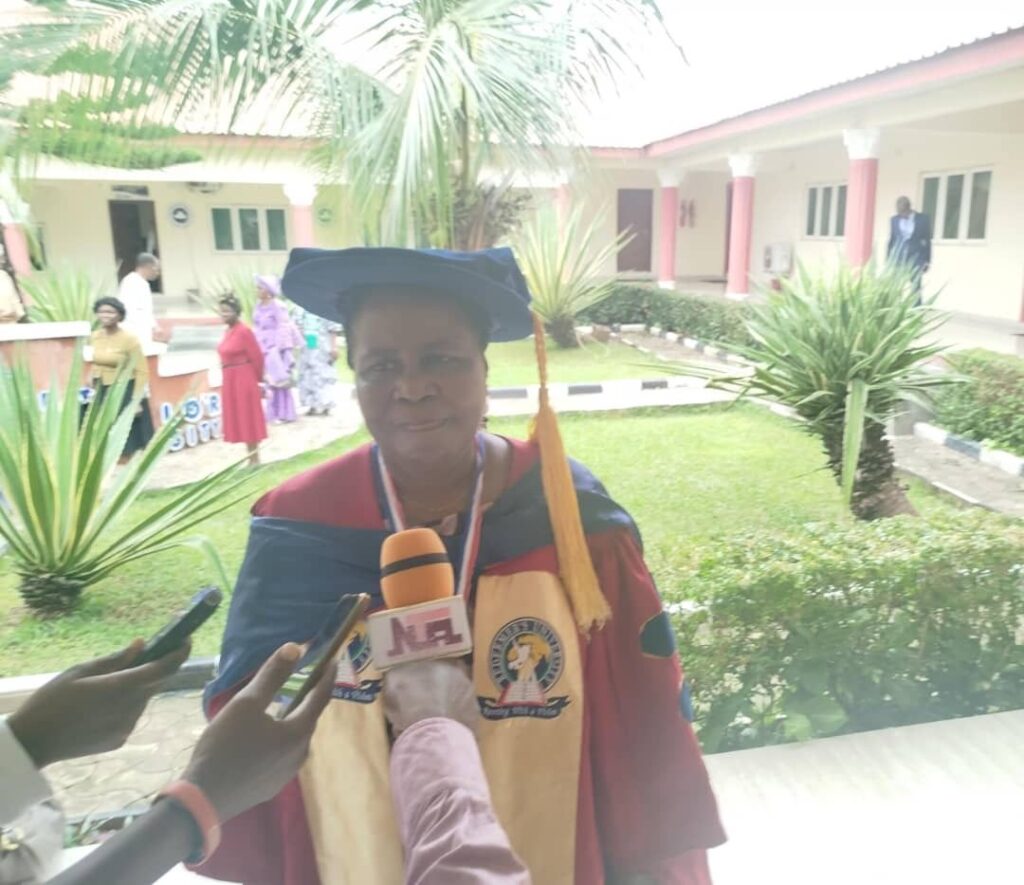Bola Olusola Adeleke, a Professor of Sustainable Tourism Management at Redeemer’s University, Ede, Osun State, has advised the federal government to make development of tourism potential of the country a priority, saying the sector can take the economy to higher pedestal than what the oil can do.
Adeleke regretted the poor attentions the government is paying to the sector, adding that tourist attractions in Nigeria can bring tremendous development to the country, if properly harnessed without further depending on oil.
She further said that if Nigeria can sell its sand, sun, and sea like Gambia, the country might earn more from tourism than it does from oil.
She made this known during her inaugural lecture titled “Sustainable Tourism: An Impetus for National Development” delivered on Thursday, June 26, 2025 in the school auditorium.
She warned that unless Nigeria begins to harness its vast tourism potential, the nation will continue to miss out on an industry capable of lifting millions out of poverty and creating jobs across all skill levels.
Using global data to support her argument, Professor Adeleke noted that tourism accounts for 10% of the world’s GDP and one in every ten jobs.
She added that Nigeria’s tourism sector, which contributed about $17 billion (3.6% of GDP) in 2022 and employs nearly two million people, is severely underperforming considering the country’s natural and cultural assets.
“We have what Gambia is selling — the sea, the sand, and the sun,” she said. “They don’t have oil, yet tourism is keeping their economy alive. Why is Nigeria not doing the same, when we have even more resources and potential?”
She described tourism as a “multifaceted industry” that accommodates the skilled, semi-skilled, and even the unskilled, offering economic opportunities to a wide range of people. Citing examples from Costa Rica, Kenya, and Zanzibar, she explained how these countries leveraged sustainable tourism to generate national wealth, create jobs, and position themselves globally.
For Nigeria, however, the road to a thriving tourism economy lies in policy integration, branding, investment, and security.
According to Professor Adeleke, sustainable tourism is not just about attracting visitors but about preserving culture, protecting the environment, and ensuring community participation.
She called for policies that align with the United Nations Sustainable Development Goals (SDGs), particularly SDG 8, which focuses on decent work and economic growth.
She recommended eco-certifications for hotels, community-based tourism training programs, and regulated visitor numbers at fragile ecological sites.
On branding, she suggested a revamp and expansion of the existing “Tour Nigeria” campaign to project Nigeria as a premier eco-conscious destination.
“We must tell the world our story, the Durbar festivals, Yankari National Park, Osun-Osogbo Sacred Grove, these are treasures that should attract global tourists,” she said.
Beyond policy and branding, she emphasized the urgent need for infrastructure development.
“No tourism can thrive in a nation with infrastructural breakdown,” she said, stressing the need for electricity, clean water, access roads, and modern hospitality facilities. She added that the government must partner with the private sector to build and manage tourism infrastructure across the country.
Security, according to her, remains the most critical issue. “Peace is an incentive to tourism,” she said. “Nobody will travel to a destination where safety cannot be guaranteed. The government must be serious about mitigating insecurity if we want to attract tourists.”
Professor Adeleke argued that sustainable tourism offers a chance to diversify Nigeria’s oil-dependent economy and address youth unemployment. She noted that tourism already sustains 1 in 10 jobs globally and offers opportunities for entrepreneurs, artisans, hospitality workers, and more.
“We are sitting on a goldmine,” she said. “The only thing we lack is the political will and coordinated effort to mine it.”
She urged government agencies to adopt eco-friendly investments like solar-powered lodges and electric transport in tourism zones, and to introduce digital campaigns that highlight Nigeria’s diverse attractions. She also advised integrating tourism into school curricula to raise awareness among young Nigerians.
Speaking, Redeemer’s University Vice Chancellor Prof. Shadrach Olufemi Akindele described the tourism as an important sector, charging government at all levels on the need to pay more attention to it in order to boost nation economy.















